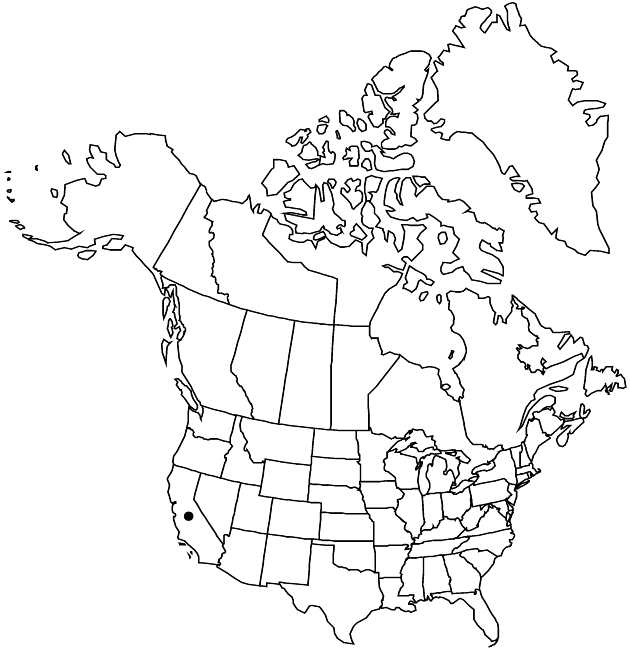Difference between revisions of "Hazardia squarrosa"
Erythea 2: 112. 1894.
Common names: Saw-tooth bristleweed
Basionym: Haplopappus squarrosus Hooker & Arnott Bot. Beechey Voy., 146. 1833 (as Aplopappus)
FNA>Volume Importer |
FNA>Volume Importer |
||
| Line 69: | Line 69: | ||
|publication year=1894 | |publication year=1894 | ||
|special status= | |special status= | ||
| − | |source xml=https://jpend@bitbucket.org/aafc-mbb/fna-data-curation.git/src/ | + | |source xml=https://jpend@bitbucket.org/aafc-mbb/fna-data-curation.git/src/f50eec43f223ca0e34566be0b046453a0960e173/coarse_grained_fna_xml/V19-20-21/V20_1029.xml |
|tribe=Asteraceae tribe Astereae | |tribe=Asteraceae tribe Astereae | ||
|genus=Hazardia | |genus=Hazardia | ||
Revision as of 20:22, 16 December 2019
Shrubs, 30–250 cm. Stems usually sparsely tomentose or pilose. Leaves sessile; blades oblong or oblong-obovate to widely obovate, 13–35(–50) × 5–17(–24) mm, coriaceous, bases clasping to subclasping, margins spinulose-dentate (teeth in 3–13 pairs), adaxial faces glabrous to sparsely puberulent. Heads borne in racemo-spiciform or glomerate-spiciform arrays. Involucres turbinate, 8–16 × 7–10 mm. Phyllaries apically spreading to reflexed, oblong, apices with green area 1–2 mm, faces prominently stipitate-glandular (at least apically). Ray florets 0. Disc florets 9–30; corollas 9–11 mm. Cypselae 5–8 mm, glabrous.
Distribution

Calif., nw Mexico.
Discussion
Varieties 3 (3 in the flora).
Selected References
None.
Lower Taxa
Key
| 1 | Leaves sparsely puberulent, not resinous; involucres 8–12 mm; disc florets 9–16, corollas 9–10 mm | Hazardia squarrosa var. grindelioides |
| 1 | Leaves glabrous or sparsely puberulent, resinous; involucres 11–15 mm; disc florets 18–30, corollas 10–11 mm | > 2 |
| 2 | Stems glabrous or scabrous; phyllaries erect, ± obtuse-mucronate, glabrous, resinous | Hazardia squarrosa var. obtusa |
| 2 | Stems distally sparsely hairy or glabrescent; phyllaries recurved, obtuse to acute, glandular | Hazardia squarrosa var. squarrosa |